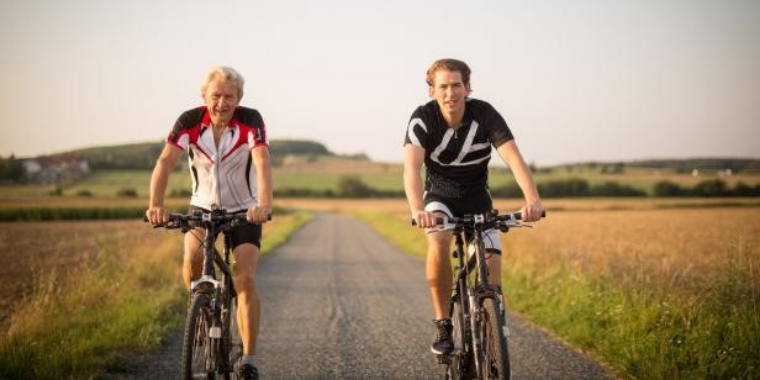
From July 2018 all eyes on Austria to shape EU cycling policies
The forthcoming Austrian EU Presidency received a letter from ECF’s Secretary General, Dr Bernhard Ensink, calling upon Austria to push forward a whole series of regulatory files with relevance to cycling. As the new Austrian government formulated the target of increasing the cycling mode share from today’s 7 % to 13 % in 2025 as part of its national Climate and Energy Strategy, getting these EU files right will be crucial in achieving this target. Austria will hold the EU Presidency from July until December 2018.
A great deal of attention will have to be paid to road safety. On May 16 the European Commission is expected to publish its long overdue proposed revision of the General Safety Regulation (661/2009/EC) which should make motorized vehicles a lot safer for pedestrians and cyclists in the future. Alongside the GSR the Commission will also come up with a proposal for revising the Road Infrastructure Safety Management (2008/96/EC) and Tunnel Directives (2004/54/EC). In both legal files there is still much room to take the needs of cyclists better into account.
Another dossier that will be landing on the desk of the Austrian Presidency is the reform of the Railway Passenger Rights Regulation (1371/2007/EC). ECF campaigns for better bicycle carriage, in particular on long-distance national and cross-border trains.
In its letter ECF also raised its concern regarding the inconsistent treatment of the 250-Watt/25kmh pedal electric assisted bicycle (pedelecs) in Commission proposals. While this type of bicycle was left out from the Regulation (EU) No 168/2013 on the approval and market surveillance of two- or three-wheel vehicles and quadricycles and has since then been treated equal to conventional bicycles by Member States, both the upcoming revision of the Motor Insurance Directive (2009/103/EC) as well as the proposed revision of the VAT Directive (2006/112/EC) effectively treat pedelecs as motorized vehicles.
Bernhard Ensink also thanked the Austrian government for its leadership on developing the pan-European Master Plan for Cycling Promotion. Once adopted next year at the 5th High-level political meeting of THE PEP (Transport, Health, Environment Pan-European Programme) in Vienna, it will give recommendations to 54 signatory states on how to support cycling development through national action.
To celebrate cycling, the Austrian EU Presidency will organize a European Cycling Summit from 24 – 26 September in Salzburg.
Regions:
Topics:
Contact the author
Recent news!
Upcoming events
Contact Us
Avenue des Arts, 7-8
Postal address: Rue de la Charité, 22
1210 Brussels, Belgium









